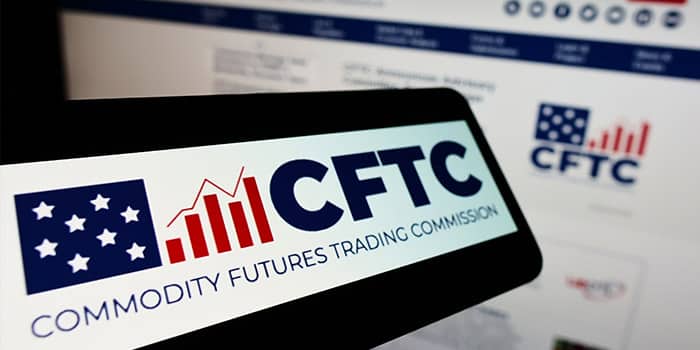- Casino
- By State
- Alabama
- Alaska
- Arizona
- Arkansas
- California
- Colorado
- Connecticut
- Delaware
- Georgia
- Florida
- Hawaii
- Idaho
- Illinois
- Indiana
- Iowa
- Kansas
- Kentucky
- Louisiana
- Maine
- Massachusetts
- Maryland
- Michigan
- Minnesota
- Mississippi
- Missouri
- Montana
- Nebraska
- Nevada
- New Hampshire
- New Jersey
- New Mexico
- New York
- North Carolina
- North Dakota
- Ohio
- Oklahoma
- Oregon
- Pennsylvania
- Rhode Island
- South Carolina
- South Dakota
- Tennessee
- Texas
- Utah
- Vermont
- Virginia
- Washington
- West Virginia
- Wisconsin
- Wyoming
- By State
- Slots
- Poker
- Sports
- Esports
Nevada Records the Highest Fraud Rate per Capita in the US
A new Tipalti report based on census data and the FBI’s Internet Crime Data from 2022, Nevada is the US state with the highest rate of financial fraud per capita

The accounting software company that is set to deliver “smart payables that elevate modern business,” Tipalti, has reported Nevada as the top-ranking US state in terms of financial fraud per capita.
286 Financial Frauds Per 100,000 People
The report, which is based on data from the Federal Bureau of Investigation’s Internet Crime Data in 2022 alongside census data, has shown that the Silver State counted 286 financial fraud victims per 100,000 people in 2022 alone.
However, in spite of reaching the highest fraud rates from all 50 states, Nevada’s legislation regards fraud as a criminal offense with potential penalties including one to four years in prison and fines as high as $5,000, based on the severity of the fraud.
Nevada’s state law defines fraud as “when individuals deliberately misinterpret themselves to receive benefits they are not entitled to legally, including housing, insurance proceeds, and money.”
The Most Common Types of Financial Fraud
The Tipalti report also detailed the most popular types of financial fraud, with phishing ranked first with close to 300,500 victims, which is five times higher than data breaching which ranked second with close to 59,000 victims.
Non-payment or non-delivery is the third most common financial fraud in the US with close to 52,000 victims.
Phishing happens when an attacker manages to trick a user into installing malware or revealing sensitive information.
In 2022, Americans who fell victim to scammers pretending to be highly ranked individuals in big organizations and had their business email compromised suffered losses of $2.7 billion.
At the same time, the US recorded over $52 million in total losses.
A personal data breach is a breach of security during which an unauthorized party gets access to confidential information which includes personal data. Having the highest impact in the cyber world, this type of fraud led to over 1,800 security incidents in 2022. Together, the incidents accounted for 422 million breached records in the US.
Non-payment scams are scams that happen when sellers who provide services or goods do not process their payment. Similarly, non-delivery scams occur when buyers pay for services or goods online but fail to receive the respective items.
No In-Depth Explanation
The accounting firm report that also presented Delaware as the second-ranking US state in terms of financial fraud per capita followed by Alaska in the third position did not reveal any detailed explanations regarding the reasons why Nevada has recorded the high numbers.
The same goes for the FBI data that Tipalti based its report on. However, the Las Vegas Review-Journal presented the opinions of two experts representing the University of Nevada, Las Vegas (UNLV).
UNLV’s chair of the accounting department, Jason Smith, argued that a possible explanation for why the state tops the nation is the fact that there aren’t sufficient residents with a high level of financial literacy. Smith also explained that Nevada’s friendly incorporation legislation convinces many to incorporate their businesses in the state, leading to the high financial fraud rate.
Similarly, UNLV’s director of the cybersecurity program, Gregory Moody, said that the state’s large number of gaming workers in the hospitality workforce might facilitate some forms of fraud.
Moody also mentioned Nevada’s small population as a potential factor that could make it more susceptible to reaching the top of the list.
In August, the Nevada Gaming Control Board issued a warning regarding the increase in the number of scams that were targeting casinos.
After finishing her master's in publishing and writing, Melanie began her career as an online editor for a large gaming blog and has now transitioned over towards the iGaming industry. She helps to ensure that our news pieces are written to the highest standard possible under the guidance of senior management.
Previous Article

Industry
November 24, 2023
Molotov Cocktail Causes Deadly Fire at Illegal Casino in Mexico

Next Article


Industry
November 24, 2023
Bronze Badge Tennis Official Banned for 10 Years over Match-Fixing
Must Read
Industry
April 15, 2025
Brazil Weighs Stricter Rules on Gambling Advertising
More Articles





Casino
April 18, 2025
Florida HB Seeking to Upgrade Illegal Gambling Punishments

Business
April 17, 2025
Aristocrat Reportedly Eyeing Interblock Acquisition

Legal
April 17, 2025
Appeal to Keep Evolution’s Accuser Anonymous Denied

Lottery
April 17, 2025
CTLC Says Its Members Didn’t Violate the Texas Law











